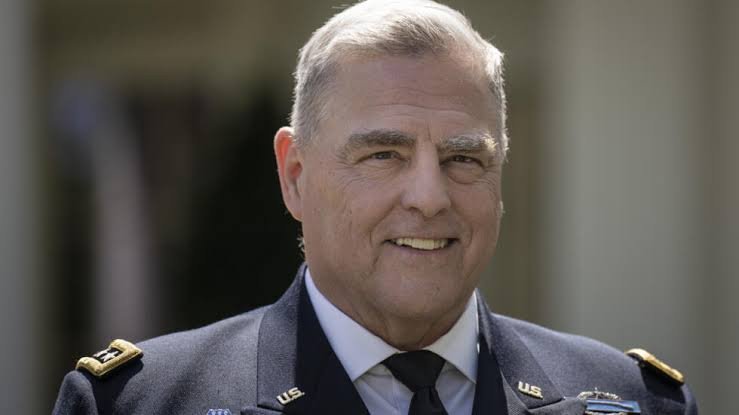General Mark Milley’s remarkable tenure as America’s top military officer

In a tumultuous term as America’s top military officer, General Mark Milley navigated a series of crises both at home and abroad, earning a reputation as one of the most prominent and polarizing figures to hold the position in recent memory.
His tenure, which concludes this Friday, was marked by a string of defining events, including Russia’s invasion of Ukraine, the US withdrawal from Afghanistan, Donald Trump’s refusal to accept the 2020 presidential election results, and nationwide protests against police brutality.
Reflecting on his time in office, Milley commented in a recent interview with AFP, “It was one crisis right after another, so we were constantly absorbed with what I would call current operations. The challenge for me is I didn’t devote enough time—because I couldn’t—to the challenge of reforming and modernizing the military.”
Milley, a 65-year-old history enthusiast, began his military career in 1980 as a commissioned US Army officer. Over the years, he served in various global hotspots, including Iraq, Afghanistan, Panama, and Haiti. Prior to assuming the role of Chairman of the Joint Chiefs in October 2019, he had also served as the Chief of Staff of the US Army.
One of the pivotal moments during Milley’s term came less than a year into his chairmanship when he faced criticism for participating in a highly publicized event with then-President Donald Trump. They walked to St. John’s Episcopal Church from the White House, where Trump posed with a Bible.
The event occurred as law enforcement used smoke bombs and pepper balls to disperse protesters demonstrating against the killing of George Floyd, a Black man, by a white police officer in Minnesota. Milley later admitted, “I should not have been there. My presence in that moment and in that environment created a perception of military involvement in domestic politics.”
The tumultuous end of the Trump administration also posed challenges for Milley. In the aftermath of the January 6, 2021, attack on the US Capitol by Trump supporters, there were concerns that the President might order an unnecessary nuclear strike. Milley took steps to ensure that proper procedures were understood, stating that it was crucial “to know what the rules are.”
Milley also had communications with China both before and after the 2020 election, actions he defended as necessary to maintain strategic stability, but which drew criticism from Republicans who accused him of undermining civilian control of the military.
While Milley found support among many US liberals who saw him as a bulwark against perceived threats from the Trump administration, he faced opposition from various conservatives, including Trump himself, who recently celebrated Milley’s retirement as a reason for national celebration. Milley lamented that he had become a “lightning rod for the politicization of the military,” despite advocating for the apolitical nature of the armed forces.
Another defining moment during Milley’s tenure was the 2021 American withdrawal from Afghanistan, marked by the rapid advance of Taliban forces and a chaotic evacuation from Kabul’s airport. Despite the challenges, Milley emphasized that the sacrifices made by US troops in Afghanistan were not in vain and had ultimately protected the country.
In the latter part of his four-year term, Milley dedicated significant efforts to assisting Ukraine in countering Russia’s 2022 invasion. His comments on the potential for negotiations and the military feasibility of Ukraine’s goals garnered attention and scrutiny.
General Mark Milley’s retirement, spanning over four decades of military service, will be commemorated with a ceremony on Friday. In his parting words, he expressed pride in the servicemen and women he had served alongside and their enduring sacrifices.







